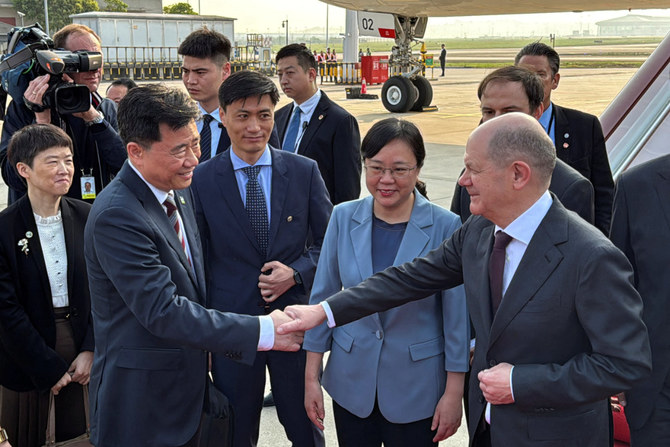
Germany must increase pressure on Russia following its military buildup at the Ukrainian border and strive for a policy of "dialogue and toughness" towards China, the Greens chancellor candidate Annalena Baerbock said in a newspaper interview.
Baerbock announced on Monday that she would run to become chancellor at the Sept. 26 election, the first time the left-leaning ecologist party has sought the top job in its 40-year history.
The Greens have seen their support surge over the past year to within only a few points of Chancellor Angela Merkel"s conservatives, with one poll earlier this week showing the ecologists even overtaking the conservative CDU/CSU alliance.
In an interview on foreign policy, Baerbock told Frankfurter Allgemeine Sonntagszeitung that the most important thing now was "to increase the pressure on Russia" after its recent military threats near the border with Ukraine.
She repeated a demand presented in the Greens" election manifesto earlier this year that said political support for a second German-Russian gas pipeline under the Baltic Sea, which has almost been completed, should be withdrawn.
Regarding the Ukrainian government"s wish to join the European Union and NATO, Baerbock said sovereign states could decide their alliances for themselves, but added that for now it was more important to reach a de-escalation in the region.
Turning to China, Baerbock said China was too big to simply cut off ties. Still, liberal democracies must uphold their values which means Europe could, for example, think about banning certain products, she said.
"We can say: products from forced labour do not come onto our market," Baerbock said.
In the event of security concerns, the EU could also limit cooperation with Chinese electronics providers, she added.
"If the Chinese government requires Chinese corporations such as Huawei, for example, to pass on European data and information, we cannot integrate products from such manufacturers into European infrastructure."
Baerbock also called for a European army under the supervision of the European Parliament and outlined steps towards a de-nuclearisation of Germany in consultation with allies.
Armin Laschet, the conservatives" candidate to succeed Merkel who is not running again after 16 years in power, supports the Nord Stream 2 gas pipeline from Russia to Europe.
In an interview with Reuters in February, Laschet said that "feel-good moralising and domestic slogans are not foreign policy."











